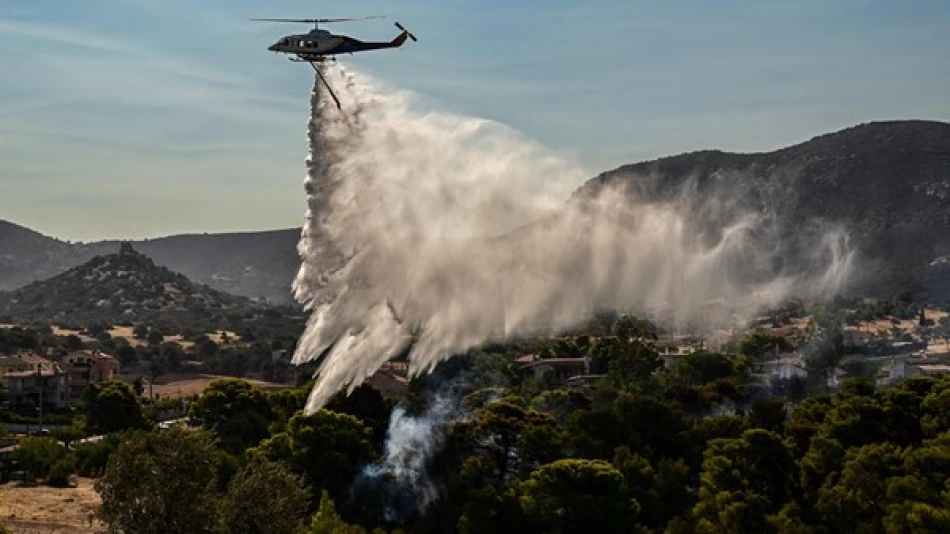
Greece Braces for Scorching Heat Wave Peaking at 41°C (106°F)
Greece Faces Extreme Fire Risk as Temperatures Soar to 41°C Amid Ongoing Drought Crisis
Greece is bracing for a dangerous combination of scorching temperatures reaching 41°C (106°F) and powerful winds starting Monday, creating what meteorologists warn will be "extreme difficulty" in controlling wildfires across most of the mainland. This latest heatwave comes as the country struggles to contain massive forest fires that have already destroyed 1,600 hectares and forced the evacuation of 400 people near Athens.
Critical Fire Conditions Through Wednesday
The Greek National Meteorological Service forecasts that the punishing heat and strong winds will persist through Wednesday, creating a perfect storm for wildfire ignition and spread. Western mainland areas will bear the brunt of the heat, with temperatures climbing between 39-41°C, while northern regions and the Aegean Sea areas will see 37-39°C.
The National Observatory of Athens issued stark warnings about Monday's weather conditions, describing them as hot, dry, and windy enough to create "extreme difficulty in fire suppression across almost the entire mainland." Eastern and southern mainland regions face the highest risk, with fire control rated as "very high to extreme."
Athens Region Under Severe Fire Alert
Civil protection authorities have classified fire risk as "severe" for Greater Athens, Fthiotida, and Evia on their official forecast maps. This designation triggers heightened emergency protocols and resource deployment, reflecting lessons learned from previous catastrophic fire seasons that have plagued Greece in recent years.
The timing is particularly concerning given that civil protection officials announced control over massive forest fires just Sunday, only to face renewed extreme conditions within 24 hours. The ongoing drought has left vegetation critically dry, creating tinder-box conditions across the country.
Climate Pattern Mirrors Mediterranean Fire Crisis
Greece's current situation reflects a broader Mediterranean crisis, where countries like Spain, Italy, and Turkey have faced increasingly severe fire seasons. The combination of prolonged drought, extreme heat, and strong winds has become a recurring summer threat across the region, forcing governments to invest heavily in firefighting capabilities and early warning systems.
The 1,600 hectares already destroyed southeast of Athens—encompassing agricultural land, forests, and grasslands—represents just the latest chapter in Greece's ongoing battle with climate-driven fire risks. The precautionary evacuation of multiple villages and rescue of 400 people demonstrates the human cost of these increasingly frequent extreme weather events.
Economic and Environmental Stakes
For Greece's tourism-dependent economy, summer fire seasons pose significant risks to both immediate visitor safety and long-term destination appeal. The country's agricultural sector, already stressed by drought conditions, faces additional pressure from fire damage during critical growing periods.
The meteorological forecast suggests this latest heatwave represents not an isolated event but part of a pattern that Mediterranean countries must increasingly prepare for as climate conditions intensify the traditional fire season risks.
Most Viewed News

 Layla Al Mansoori
Layla Al Mansoori






